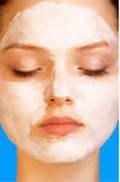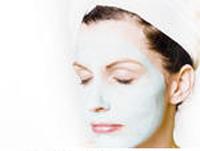|
|
Skin care as antiaging way
|
|

Skin has pigmentation, provided by melanocytes, which absorbs some of the potentially dangerous radiation in sunlight. It also contains DNA repair enzymes which reverse UV damage, and people who lack the genes for these enzymes suffer high rates of skin cancer. One form predominantly produced by UV light, malignant melanoma, is particularly invasive, causing it to spread quickly, and can often be deadly. Human skin pigmentation varies among populations in a striking manner. This has sometimes led to the classification of people on the basis of skin color. See the article on human skin color. Skin is composed of the epidermis and the dermis. Below these layers lies the hypodermis(subcutaneous adipose layer), which is not usually classified as a layer of skin. The dermis can be split into the papillary and reticular layers. The papillary layer is outermost and extends into the dermis to supply it with vessels. It is composed of loosely arranged fibres. Papillary ridges make up the lines of the hands. The reticular layer is more dense and is continuous with the hypodermis. It contains the bulk of the structures (such as sweat glands). The reticular layer is composed of irregularly arranged fibres and resists stretching. Skin can be dividided into thick and thin types. Thick skin is present on the soles of the feet and the palms of the hands. It has a larger stratum corneum with a higher keratin content. Thick skin does not grow hair; its purpose is to help grip. Thin skin is present on the bulk of the body and has a smaller stratum corneum and fewer papillae ridges. It has hair and is softer and more elastic. The characteristics of the skin, including sensory nerve density and the type of hair, vary with location on the body. The constantly peeling off dead cells of the epidermis mix with the secretions of the sweat and sebaceous glands and the dust found on the skin to form a filthy layer on its surface. If not washed away the dirt and dead skin slurry begins to decompose emitting a foul smell. The skin supports its own ecosystems of microorganisms, including yeasts and bacteria, which cannot be removed by any amount of cleaning. In general these organisms keep one another in check and are part of a healthy skin. When the balance is disturbed, e.g., by antibiotics which kill bacteria, there may be an overgrowth and infection by yeasts. The skin is continuous with the inner epithelial lining of the body at the orifices, each of which supports its own complement of flora. You are never too young or too old to start taking care of your skin. In fact, skin care and protection should be an essential part of your health, fitness, and beauty regime. The first step to taking care of your skin is preventing damage. Sun, wind, pollutants, and simply aging can degrade the condition of your skin. Common complaints include dry and itchy skin, wrinkles, sagging, color changes, and age spots. There are steps that you can take to keep you skin looking and feeling its best. Exercise, rest, and good nutrition lay the foundation for beautiful, healthy skin, inside and out. A proper diet is not only good for your overall health, it also helps to ensure that your skin will receive all of the vitamins, minerals, and nutrients that it needs to maintain and repair cells. Drinking purified water is another good way to keep your skin healthy. Water helps to hydrate the skin and move waste and nutrients through the system. It is very effective mixing a teaspoon or capful of Organic Apple Cider Vinegar in with your water. Do not drink Tap Water. Wash your skin thoroughly on a daily basis to remove the dirt, debris, pollutants, and perspiration that accumulates on a daily basis. If you have dry or sensitive skin, use only warm water to wash your skin and use a mild natural cleanser every few days. If you have normal or oily skin, be sure to wash with a gentle cleanser on a daily basis. Be sure to brush your teeth before washing your face, as toothpaste residue can irritate sensitive facial skin. Unless your skin is very oily, you will want to use a moisturizer everyday to keep your skin hydrated and healthy. Your skin needs moisturizer all year long as both the indoor winter heat, and summer sun can be equally damaging to your skin. Use a natural sunscreen when possible, regardless of whether or not you plan on spending much time in the sun. The sun's rays are very damaging and if you get in the habit of applying sunscreen everyday, you will never be left without protection. The suns most beneficial rays occur at sunrise and sunset. Apart from the services offered at skin clinics, many creams, gels and ointments that claim to treat acne, diminish sun or age spots and enhance skin elasticity are widely available in the market. There are scrubs, cleansers, masks, over-the-counter skin medicine and skin peel formulations, all offered at various price ranges. Most can be bought at department stores or drugstores, but the fact is that very few of these so- called miracle products actually work. As we age, our body undergoes various changes, and so does our skin. In our skin, we have tissues known as collagen and elastin. These tissues are mainly responsible for making our skin firm and stretchable. As we grow older, the amount of collagen and elastin in our skin naturally diminishes. As a result, our skin becomes less elastic and weaker, thus creating "wrinkles". Over the years, beauty experts and skin doctors have come up with a vast array products to treat and minimize wrinkles. Anti-wrinkle creams and ointments help reduce the appearance of wrinkles and prevent new ones from forming. These wrinkle ointments and anti-aging creams help a lot in restoring the skin's firmness and elasticity. In addition, these products contain anti-oxidants and retinol that not only aids in reducing wrinkles and fine lines on the skin, but also stimulates collagen production. One less painful procedure is the particle skin resurfacing procedure. The process is removes the outer layer of skin in a highly controlled manner. Because of its preciseness, it is practically painless. By repeating this procedure a number of times, the younger skin moves to the surface, thus promoting visible changes in the skin's texture, color and appearance. The benefits of this skin resurfacing procedure are that it causes very little pain or discomfort, no recuperative period is needed, there is minimal risk, it can be used for all skin types, and no anesthesia is required. There are a lot of skin care products in the market today. Unlike before when a normal bar of soap was used for skin cleansing, cosmetic companies are now producing a wide variety of skin care treatments that can address various skin concerns. However, there are cases when treatments need to be more aggressive, especially for those who have aging or blemished skin. Most, if not all, of the over-the-counter products are topical in nature, meaning it only affects the epidermis or the outer layer of the skin. Aging or blemished skin needs to be treated down to the root of the problem to see definite changes.
Definitions on this pageEpidermis Hypodermis Pimples Ultraviolet radiation Feel good is great. Learn this way and use it.
|
|
Information in this document about Skin care named Skin care as antiaging way is for End User's use only and may not be sold, redistributed or otherwise used for commercial purposes. The information is an educational aid only. It is not intended as medical advice for individual conditions or treatments of Skin care. Additionally, the manufacture and distribution of herbal substances are not regulated now in the United States, and no quality standards currently exist like brand name medicine and generic medicine. Talk about Skin care to your doctor, nurse or pharmacist before following any medical regimen to see if it is safe and effective for you. © Copyright 2007 World Health Organization, Skin care section. |
